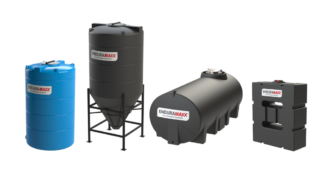Table of Contents
When it comes to heart health, many of us often overlook the simplest solutions. One of the most enjoyable methods to promote cardiovascular wellness is surprisingly relaxing – soaking in a hot tub. In this blog, we will explore the heart health benefits of hot tubs, how they improve circulation, lower blood pressure, and reduce stress levels. With insights from research and medical experts, you’ll discover the remarkable effects of passive heat therapy on your heart function. Whether you are recovering from cardiac issues, seeking natural ways to manage health, or simply hoping to enhance your overall wellness, understanding the connection between hot tubs and heart health is essential.
1. Understanding Cardiovascular Health
Before diving into the benefits of hot tubs, it’s crucial to understand what cardiovascular health entails. The cardiovascular system comprises the heart and blood vessels, working together to supply blood, oxygen, and nutrients throughout the body. Maintaining heart health is vital for overall wellness, as poor cardiovascular health can lead to serious conditions like hypertension, heart disease, and stroke.
2. Improved Circulation with Hot Tubs
One of the most immediate benefits of soaking in a hot tub is improved circulation. The warm water causes blood vessels to dilate, which enhances blood flow. Enhanced circulation delivers more oxygen and nutrients to tissues, benefiting every organ in the body, particularly your heart. Studies indicate that passive heat therapy can improve circulation significantly, making hot tubs a practical option for those looking to optimize their cardiovascular health.
3. Lower Blood Pressure Naturally
Research suggests that regular hot tub use can lead to lower blood pressure. The heat from the water relaxes blood vessels, allowing blood to flow more freely. A study published in the Journal of Cardiopulmonary Rehabilitation and Prevention found that participants who used hot tubs regularly experienced reduced blood pressure levels compared to those who did not; more details can be found here. This natural way of managing blood pressure is especially beneficial for those who may not be able to engage in regular physical activity.
4. Stress Reduction and Its Impact on Heart Health
Stress is a known contributor to heart disease. Hot tubs provide a tranquil retreat, allowing you to unwind and de-stress. The soothing warmth of the water, combined with hydrotherapy effects, can significantly lower cortisol levels, the body’s primary stress hormone. Reducing stress not only feels good but also has lasting health benefits for your heart. Take a moment each day to immerse yourself in a hot tub; your heart will thank you.
5. The Role of Hydrotherapy in Heart Health
Hydrotherapy, or water therapy, harnesses the healing powers of water to improve health outcomes. The buoyancy of hot tub water reduces strain on joints and muscles, providing relief and allowing individuals with limited mobility to enjoy therapeutic benefits. For those recovering from heart conditions, hydrotherapy can promote movement and relaxation, contributing positively to rehabilitation.
6. Real-life Experiences: Testimonies from Users
Many people have reported remarkable improvements in their health after incorporating hot tubs into their routines. For instance, John, a 60-year-old retired firefighter, shared that regular hot soaks helped him lower his high blood pressure and feel more relaxed. Meanwhile, Sarah, a fitness enthusiast, found that her muscle recovery times improved significantly after using her hot tub following workouts. These real-life cases underscore the profound impact hot tubs can have on an individual’s heart and overall well-being.
7. Safety Tips for Hot Tub Usage
While hot tubs have numerous benefits, they should be used with caution, especially for individuals with pre-existing health conditions. Always consult with your healthcare provider before starting new routines. Here are some essential safety tips:
- Limit your soak to 15-30 minutes to avoid overheating.
- Stay hydrated by drinking water before and after using the hot tub.
- Monitor the water temperature; it should be comfortable, typically between 35°C and 40°C.
- Avoid alcohol consumption while soaking.
8. Conclusion: Embrace the Benefits of Hot Tubs
In conclusion, hot tubs offer a plethora of heart health benefits, including improved circulation, lower blood pressure, and effective stress reduction. By making hot tub use a regular part of your routine, you are not only indulging in a luxurious experience but also proactively managing your cardiovascular health. So why wait? Embrace this therapeutic practice for a healthier heart!
Ready to boost your heart health naturally? Browse our CenturaHeat Hot Tubs range and discover the therapeutic benefits of owning your own hot tub.







